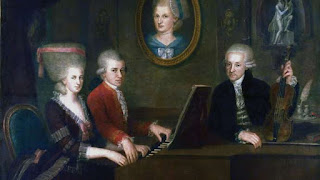English as a Lingua Franca, or ELF. What is it, and why are we interested in it? Well, first of all, I should begin with a definition of what ELF is. So ELF in its most simple definition is the use of English between speakers who don’t share a first language. So English serves as a medium or a contact language for intercultural communication. Now, I should stress that this does actually include native speakers of English as well. But, of course, native speakers of English are not the majority of ELF users. And the kind of communication you get in ELF does not follow native speaker-like English. Now, why are we interested in ELF, or English as a Lingua Franca?
Well, one of the most simple reasons is the numbers of speakers of ELF, or users of ELF. There are estimated to be around 2 billion users of English around the world. So that’s between one in three and one in four of the population of the world that can use English at some level or for some functions. Now, this has really important implications for how we understand English and for the ownership of English. This means that English is no longer centred on the anglophone world and native speaker countries, such as the UK or the US. But ownership of English is now spread around the world and to users of English as a Lingua Franca.
It’s important to distinguish English as a Lingua Franca from some of the other fields of study that are related to English globally. So probably the most well known one of these is World Englishes. So this is the study of varieties of English, for example. Indian English, Singaporean English, Nigerian English. Now, English as a Lingua Franca is different because English as a Lingua Franca is not about a variety of English. It’s about English used as a contact language, or a language of intercultural communication. Whereas World English is concerned with geographical and national locations and uses of English. So another closely related term is English as an International Language.
And ELF and English as an International Language, or EIL, have sometimes been used interchangeably. But there is an important difference between them. English as an International Language was often in early years described as a form of international English and a variety of English. Now, there’s quite a lot of controversy as to whether there is any kind of international variety of English. And ELF is not a variety of English, and certainly not an international variety. It’s also important to distinguish ELF from EFL, or English as a Foreign Language. Now, I know the two acronyms are very close, so people often confuse them, including myself sometimes. But they are actually very different. ELF or English as a Foreign– sorry.
I’ve just done it there. English as a Foreign Language, as opposed to English as a Lingua Franca, looks at communication between non-native speakers of English and native speakers of English, where the non-native speakers are expected to conform and adjust their language used to native speaker like usage. ELF, in contrast, can involve native speakers, but they’re not the majority. And the focus is on intercultural communication. So the non-native speakers are not expected to adjust or adapt their English to native speaker-like English. Rather, native speakers are expected to adjust their English as much as all other participants in communication. So ELF as a field of study is a relatively new field of study.
It has been looked at for a long time, but as a major research area, it’s really got going in the last 20 years or so. Now, this began in the early 2000s with three researchers who are sometimes referred to as the mothers of ELF, with Jennifer Jenkins, who you heard from earlier in the week, being one of the mothers. Now, her research back in 2000 looked at what was called the lingua franca core. And I’ll talk about that a bit later. Another big research project was the Vienna Oxford International Corpus of English, which is based at Vienna University and was led by Barbara Seidlhofer and her team there. And the other major piece of research was the ELFA Corpus.
And this was the English as a Lingua Franca in Academia Corpus. And this was led by Professor Anna Mauranen at the University of Helsinki. And these corpus studies aim to collect examples of, I think it was almost entirely spoken English used a lingua franca, and to document the features and characteristics of that. And that helps people understand what English as a lingua franca is and also look at implications for language policy and language teaching.

Comments